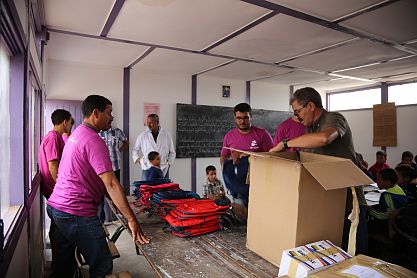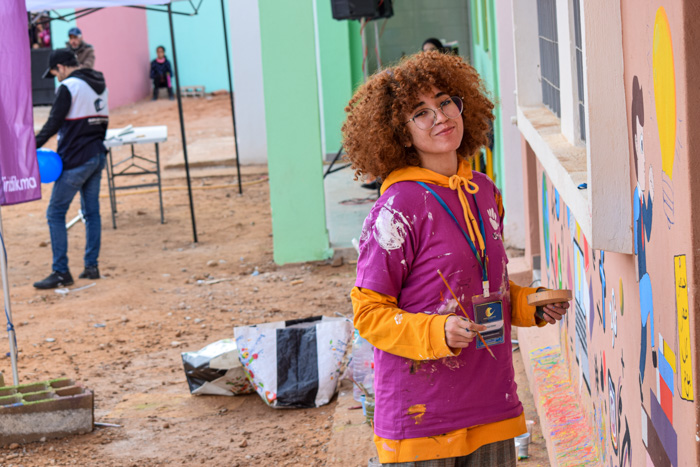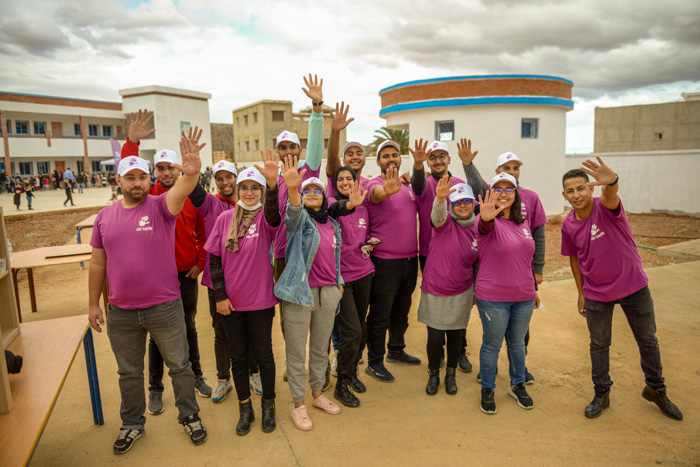
Are you a committed volunteer, a member of a school club, or an executive board member for an association? Do you want to collect donations to help those in need, but don't know where to start? Follow these easy guidelines to make your fundraising campaign a success.
Who Can Launch a Fundraising Campaign?
In Morocco, it is important to distinguish between collecting donations in kind and collecting money. While the former is implicitly open to the general public, the latter is a supervised practice governed by law.
Law no. 004-71 states that "any association or grouping that is formed as per the regulations and has its headquarters in Morocco wishing to appeal to public generosity must, against a receipt, have a representative duly mandated for this purpose file a request for authorization, at least fifteen days before the date of the planned event, as the case may be, with the governor of the prefecture or province where the event is to take place, if it is of a local, provincial or prefectural nature; the Wali of the region if the event concerns more than one province or prefecture of the region concerned; and the secretary-general of the government if the event is national."
Thus, the procedure for filing applications for public appeals for donations is limited to organizations that can specify the nature, date and place of the event and the destination of the collected funds. These associations must also provide a detailed report of the amounts collected, the last renewal notice of the association's board, a copy of the financial statement, the program of the event, and the identity and the quality of the individuals in charge of the collection, among others.
In short, certain administrative procedures must be respected and fundraising campaigns are not open to everyone.
What About Participatory Financing?
Participatory financing (or crowdfunding) has been a grey area due to the lack of specific regulations for this mode of financing. Platforms like Wuluj and Cotizi are used by some entrepreneurs, associations and cooperatives to finance projects that have a strong social nature, but we still see none of the popularity of the concept that exists in Europe and across the Atlantic.
Fortunately, on February 11, the House of Representatives passed Bill no. 15-18 on collaborative financing. According to the Ministry of Economy and Finance, this will become a development lever for young project organizers, social enterprises and associations.
Be patient, you will soon be able to use crowdfunding to finance all your volunteering activities!
Social Networks Play a Key Role in Collecting Donations
At Dir iddik, we work with a large number of young people affiliated with national and international organizations that regularly raise donations via social media. These include Rotary and the Young Moroccan Leaders (JLM), who regularly collect huge amounts of clothing, blankets and food by mobilizing their respective communities online. Their secret?
A great mastery of digital communication as they manage to generate viral content and reach large audiences through posts, videos, stories and other shared content.
The Internet facilitates the implementation of the onion method, referring to first soliciting the close circle of friends (the heart of the onion) before engaging with progressively less close people (the other layers of the onion). For example, before launching a public appeal it is advisable to first introduce the location of the action, produce a list of needs, make a video, document the receipts and sort out donations for transparency, involve best friends, and then expand to colleagues, friends of friends and acquaintances.
Tagging certain individuals on posts, involving micro-influencers, and setting achievable goals (which can be scaled up later) while sharing the different stages of preparation and challenging one's community to join in all help to boost the campaign and reach a larger audience.
Some associations take it even further by going door-to-door and targeting popular places such as train stations, public squares, supermarket entrances and shopping malls (while obviously respecting health regulations during this pandemic). To make their work more credible, they offer donors badges, pins, calendars or simple time-stamped receipts.
A Well-Planned Approach
Thinking through your campaign several weeks in advance and determining its needs, scope and originality are factors critical to success. You don't want to bore your community by asking too much, too fast and too often.
Is winter coming? Prepare to hold warm clothing and blanket drives by the end of the summer to be ready to distribute the items in the fall. This will give you time to sort and recruit volunteers, identify your beneficiaries and comfortably manage your logistics.
Are school supplies in short supply for students in remote regions? Start your collection at the end of the school year (not at the beginning, which is what most associations do) and collect old textbooks, bags and used kits that you can sort through and patch up over the summer.
Controlled Distribution
Moroccan elected officials have passed a law regulating charitable operations to avoid overflows and accidents that could harm gatherings of beneficiaries. The aim is to supervise the distribution of aid during charitable operations.
Thus, it is now necessary to inform the public authorities, police station, pachalik and/or caïdat, as well as the civil protection authorities, and respect certain safety standards to ensure smooth running and success when distributing donations.
What to Remember for a Successful Fundraising Campaign
To summarize, to greatly increase your chances of a successful fundraising campaign, you should:
- Plan well in advance
- Follow certain good practices
- Leverage the power of social networks
- Act in accordance with the relevant laws
- Be sincere and transparent



